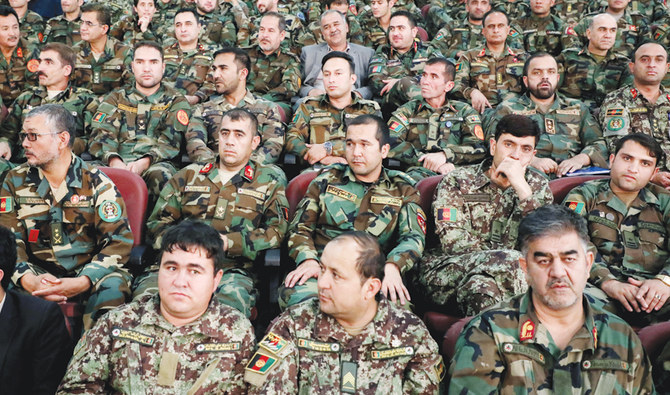KABUL: Exhausted by protracted fighting and lawlessness, some Afghans had hoped the US decision to invade Afghanistan to topple the Taliban in response to the Sept. 11, 2001 attacks would lead to peace and stability. Eighteen years on, some of those who welcomed the invasion question US intentions and feel disappointed. They argue that the country is more divided and bloody than ever, has weak government, a rampant narcotics trade and that extremism has soared, with the nation’s fate looking bleak.
“I was one of those people who hailed them (the US) because they had created the perception that they will fight terrorism, bring us democracy, peace and an accountable government,” Humaira Ayoubi, a former MP from western Farah, told Arab News.
“They drove the Taliban from power within weeks. How come 18 years on, despite their vast resources, technology and military might, the Taliban are back in control of more ground than the government in my province? Where is the rule of law, justice, peace and good governance?”
She said ordinary people in her constituency who also supported the arrival of US-led troops at the time now say Washington “has a hidden agenda — it can easily win the war, but does not want to, because it wants to remain in Afghanistan.”
Even former Afghan President Hamid Karzai, who came to power with US help after Taliban’s fall, has claimed that Washington uses “terrorism” in Afghanistan as an excuse to remain in the country.
US leaders say they have no secret agenda in Afghanistan, and do not wish to maintain a long-term military presence there.
Ayoubi said she and others had clearly told US diplomats and generals that they were pursuing the wrong policy in Afghanistan by not hitting the Taliban in neighboring Pakistan.
Nearly 3,000 people lost their lives during the Sept. 11 attacks, carried out by a group of Al-Qaeda operatives who flew planes into the twin towers of the World Trade Center in New York, and the Pentagon in Washington, DC. A fourth plane, also bound for the US capital, crashed en route in Pennsylvania.
Al-Qaeda leaders were protected by the Taliban in Afghanistan, which led to the subsequent invasion following the attacks. Since then, countless Afghan civilians have been killed in Taliban attacks and offensives by US and government forces.
BACKGROUND
• A Taliban suicide bomber detonated a vehicle laden with explosives at an Afghan army in Kabul on Thursday, killing 4 troops.
• The attack was the first by the group since US President Donald Trump called off peace talks at Camp David this week.
Waheed Paikan, a journalist working for the BBC in Kabul, has tried to point out to the world the scale of the deaths caused by the war in Afghanistan. On the 18th anniversary of the Sept. 11 attacks, he tweeted: “Your 9/11 is our 24/7!”
Wahidullah Ghazikhail, who runs the Center for Studies and Research think tank in Kabul, said US leaders had given Afghans bogus promises for “justifying” the invasion.
“Eighteen years later, the situation is not like Afghans hoped at the beginning. Women’s rights, freedom of speech and the freedom of the media were justification for America’s invasion. Our forces are weak and without NATO and American troops they cannot defend us,” he told Arab News.
He said Afghans needed to know why, despite the continued US presence, the Taliban had become strong again, and other militant groups such as Daesh had emerged in recent years.
Meanwhile, a Taliban suicide bomber detonated a vehicle laden with explosives at an Afghan army outside Kabul on Thursday, killing 4 troops, government officials said.
The attack was the first by the group since US President Donald Trump called off peace talks at Camp David this week.






















